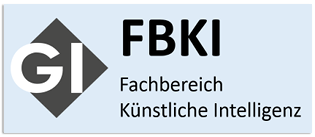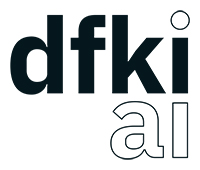Keynote Speakers

Tristan Cazenave
LAMSADE, Université Paris-Dauphine, PSL, CNRS and PRAIRIE Institute, France
Monte Carlo Search
Monte Carlo Search is a family of general search algorithms that have many applications in different domains. It is the state of the art in perfect and imperfect information games. Other applications include the RNA inverse folding problem, Logistics, Multiple Sequence Alignment, General Game Playing, Puzzles, 3D Packing with Object Orientation, Cooperative Pathfinding, Software testing and heuristic Model-Checking. In recent years, many researchers have explored different variants of the algorithms, their relations to Deep Reinforcement Learning and their different applications. The talk will give a broad overview of Monte Carlo Search and of its applications

Giuseppe De Giacomo
Sapienza University of Rome, Italy
Autonomy in AI: Reactive Synthesis, Planning and Reinforcement Learning in Linear Temporal Logic on Finite Traces
A central topic in AI is building autonomous agents that act intelligently. Reactive Synthesis, Planning in Nondeterministic Domains and Reinforcement Learning are all about automatically synthesizing an agent behavior/strategy/policy to accomplish a task in a partially controllable (nondeterministic) world. In this context, it is important to sharply distinguish between the world model (the domain) and the task specification (the goal), to take into account the fact that model of world seldom change, while the tasks that the agent has to accomplish in it change unceasingly as the agent operates. As a result, the agent will work for a task only for finite amount of time (before switching to the next), while the world continues to exist when the task is over. In this talk we discuss these issues, and consider various forms of synthesis, where the world and the agent tasks are expressed in Liner Temporal Logic, LTL, the formalism most commonly used in Formal Methods for specifying dynamic properties, as well as in its finite-trace variant, LTLf, which is particularly useful for specifying intelligent agent tasks.

Birte Glimm
University of Ulm, Germany
Ontologies for Providing Map Knowledge to Autonomous Vehicles
In order to understand its surroundings, an autonomous vehicle needs a detailed, high-definition map, which acts as a powerful virtual sensor. The current map ecosystem experiences, however, a range of challenges: First, despite ongoing standardization efforts, maps come in several proprietary formats. Second, current high-definition maps are so detailed that it is largely impossible to simply store a complete map within a navigation system. Instead, map data is sent dynamically to the vehicles based on the current position. Last but not the least, maps are highly dynamic and errors may easily be introduced. In order to address the challenges of scalability, velocity, and map data quality, we propose an ontology-based architecture with an embedded quality assurance mechanism. The different map formats are first represented in dedicated low-level ontologies. The knowledge required for autonomous driving functions is then transferred into a more light-weight unified high-level ontology, which is queried by application functions, e.g., to determine whether a lane change is indicated. Our empirical evaluations provide evidence that this approach enables effective map data integration while providing efficient map updates with ensured map data quality.

Kristian Kersting
Joint Keynote with Informatik 2021
CS Department, Centre for Cognitive Science, Hessian Center for AI (hessian.ai), TU Darmstadt, Germany
The Third Wave of AI
Most of AI in use today falls under the categories of the first two waves of AI research. First wave AI systems follow clear rules, written by programmer, aiming to cover every eventuality. Second wave AI systems are the kind that use statistical learning to arrive at an answer for a certain type of problem. Think of image classification system. The third wave of AI envisions a future in which AI systems are more than just tools that execute human programmed rules or generalize from human-curated data sets. The systems will function as partners rather than as tools. They can acquire human-like communication and reasoning capabilities, with the ability to recognize new situations and to adapt to them. For example, a third wave AI system might note that a speed limit of 120 km/h does not make sense when entering a small village by car. In this talk I shall argue that it is time to usher in the third way of AI. We have deep models, even deep models that know when they do not know. We have the first models that combine learning and reasoning. We have machines that capture our moral compasses. We have machines that engage with us in order to be right for the right reasons.

Katja Mombaur
Canada Excellence Research Chair in Human-Centred Robotics and Machine Intelligence, University of Waterloo, Canada
Motion Intelligence for Human-centred Robots
Human-centred robots have the potential to support and facilitate people’s lives, ranging from improved well-being and increased independence to reduced risk or harm, a removal of boring jobs. They can take the form of humanoid robots, wearable robots or other types of mobility assistance robots and have to enter in in close physical interactions with humans or support them physically. For this, human-centred robots require motion intelligence or embodied intelligence that makes the robot aware of how it moves in and interacts with its dynamic environment and with humans. In this talk, I will give an overview of our research on endowing human-centred robots with motion intelligence, covering examples from humanoid robotic co-workers to exoskeletons and external assistive devices in medical applications. An important ingredient of this research is to gain a fundamental understanding of the biomechanics of human movement and human-human and human-robot interaction and to translate this understanding into predictive mathematical models. Another core component of our research is the development of efficient algorithms for motion generation, control and learning, combining advanced model-based optimization with model-free approaches.

Stuart Russell
Professor of Computer Science, University of California, Berkeley, USA
Human-Compatible Artificial Intelligence
It is reasonable to expect that AI capabilities will eventually exceed those of humans across a range of real-world-decision making scenarios. Should we "expect the machines to take control," as Alan Turing and others have suggested? Or will AI complement and augment human intelligence in beneficial ways? It turns out that both views are correct, but they are talking about completely different forms of AI. To achieve the positive outcome, a fundamental reorientation of the field is required. Instead of building systems that optimize arbitrary objectives, we need to learn how to build systems that will, in fact, be beneficial for us. I will argue that this is possible as well as necessary. The new approach to AI opens up many avenues for research, including several that connect to core questions in philosophy and the social sciences.





